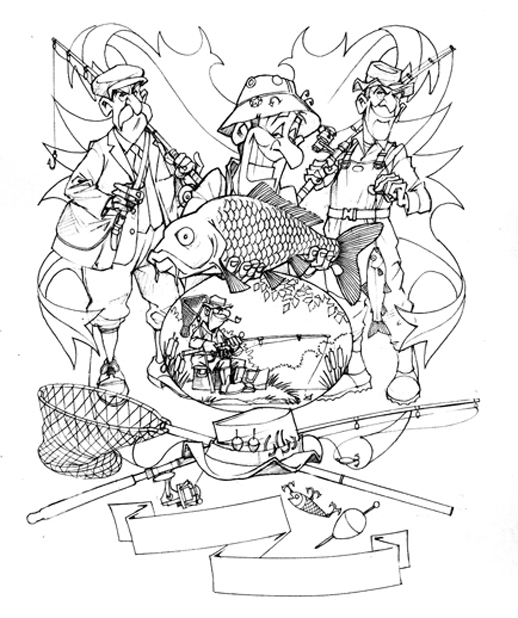A new book of angling advice, anecdote and miscellany by Waterlog contributor Rob Beattie.
Review by Jon Berry.
Fishing history is an intriguing backwater outside the main current of the sport’s written output. For every effort to chronicle angling’s rich heritage, there are dozens of instructional guides demonstrating fly-tying, hair-rig variations or how to get the best from your spod mix (and if you don’t know what the last of these means, be thankful).
Where writers have attempted to capture the richness of the piscatorial past, they have either turned out earnest, serious tomes (I’ve contributed to the genre myself, and can vouch for the critical acclaim and indifferent sales) or have put together anthologies that celebrate the sport’s great names (Paxman’s Fish, Fishing and the Meaning of Life is the one you’ll see most frequently in your local bookseller’s, though David Profumo’s The Magic Wheel is the one by which all others should be judged).
Rob Beattie’s Fishing – A Very Peculiar History is none of these and all of them. It sits in an eddy all its own, and is much the better for it. Beattie is a regular Waterlog contributor and a freelance writer of catholic tastes – The Campsite Companion, 101 Things To Do In A Shed and a comprehensive guide to Windows Vista, among others – but here he has produced a pocket-sized, creel-friendly collection of advice, anecdotes and miscellanea that might well appeal to the kind of fisher-folk who inhabit CBTR’s corner of cyber-space.
It is light-hearted stuff. Beattie likens the Wels Catfish to a skinned cat crossed with a used condom and suggests that we make our bite alarms from budgerigars’ bells. There are recipes for sturgeon, quotations from Shakespeare and even a little philosophy. Barely two pages are given over to sea fishing, almost twenty to the debate between traditionalism and modernity, but it is these idiosyncrasies that make the book work. It is not that it isn’t informative – it is – but the good advice in its pages is delivered with a droll, tongue-in-cheek sense of the surreal. Beattie has no manifesto as such but throughout, there’s a sense that the point of going fishing is exactly that – going fishing – and that capturing fish is an inevitable consequence and a relatively unimportant one at that. For this reason, the hardest-nosed bivvy boys will probably hate it, and that’s recommendation enough. The author’s thoughts on fishing ethics and modern baits are typical:
Fishing should be like seduction. You should be able to choose the right venue, pick the time to meet, present your wares at their most attractive, maybe even spray on a bit of perfume – but you shouldn’t be allowed to cover yourself in pheromones, sit in a bar in your vest and pyjama bottoms eating a bag of cheese and onion crisps while passing members of the opposite sex – unable to resist – throw themselves at you.
Quite. Fishing humour is always risky stuff; ghost-written tales about snooker players/soap actors/ageing sports stars who are adept only at falling in/losing whoppers/getting chased by bulls is the standard formulae and sells the readers, and fishing itself, all too short. But Beattie gets the point – it is fishing itself that is funny. The gadgets, the terminology, the ludicrous conceit of catching something, naming it and slipping it back harmlessly (simultaneously forgetting the thousands of pounds it cost in tackle and bait to get to that point) is where the humour lives. We are doing something beautiful, life-affirming, poetic at its best, but ultimately as daft as daft gets. Fishing – A Very Peculiar History understands that.
In a market dominated by technological treatises which focus only on how to catch fish, this book is indeed very peculiar. In all probability it won’t make you a better angler, but the books that will aren’t half as much fun.
Fishing – A Very Peculiar History is published by Book House, priced £7.99.You can buy a copy here.
